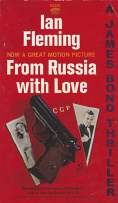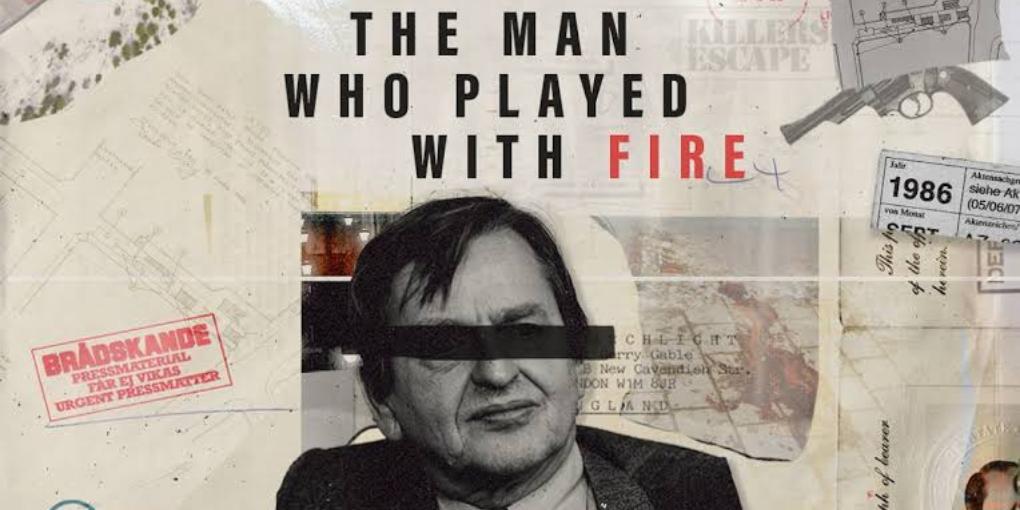I have never understood what Francis Fukayama’s famous statement of “the end of history” meant until I went to the USA in 2012 in order to do my doctoral studies. After settling in the post-industrial city of Buffalo, NY, I noticed that people lived their everyday lives day in and day out without anything significant happening. Life there had its own autonomous rhythm, and by “autonomous” I mean, it was not conditioned by larger social and political events. In a certain way, it was indeed “the end of history.”
That was far from how things were back in Türkiye where history seemed to continue incessantly (and nowadays exhaustingly). A series of major crises (most importantly the economic crisis 2001) and disasters (the major earthquake with a huge death toll in 1999) rendered the state apparatus ineffective and helpless. In response to the apparently failed old establishment, a considerable portion of the population voted for the political-Islamists, which became the first party in the general elections of 2002, and a new phase started in Turkish politics. The formerly excluded cadres started to take more positions of influence while the old establishment put up a resistance in order to maintain its long-standing dominance within the Turkish state. The result was a wide media coverage of this struggle among various factions within the state.
The “Ergenekon” case was one of the major news in the late 2000s. It started off with the discovery of hidden arsenals around the city of Istanbul and the investigation involved several state institutions, business sector, and fields of culture and sports. A prominent political figure of the ruling party described the investigation and the trial as “Türkiye cleansing its intestines.” Against this background, code names that had conspiratorial and mystical tone to them (e.g., Gladio, cosmic room, etc.) came into circulation, history was re-narrated, the living culprits were presented as the ones responsible for almost all the evil deeds in the country’s history. It was a cleansing ritual alright but, in many ways, it was also scapegoating.
This was the era in which conspiracy narratives reached their peak, and since then they have always been popular.
Türkiye has long been a rich geography in terms of conspiracy narratives. One of the reasons for that is the role played by the Turkish state. Unlike the states of liberal democracies, which are conceived of as the bastions of Enlightenment, transparency, and rationalism, the Turkish state like many others in the Middle East has relied on conspiracy narratives to establish populist ties with large segments of the society. In these narratives, the world is boiled down to “us” and “them” as it becomes easier for people to understand the world and associate themselves with the state. In that respect, what we have been witnessing in the last couple of years with the rise of right-wing populism around the world has in fact a longer presence in Türkiye. As we are familiar with the examples of Donald Trump and the European far-right, conspiracy narratives against various groups of ‘others’ such as Muslims and immigrants have come to occupy public discussions in Western liberal democracies that are historically known for their ideological exclusion of such narratives.
The question I want to pose here is how come a genre like spy fiction that feeds on such tendencies has not flourished despite the deeply entrenched tradition of conspiracism in Türkiye. Such a question is far from being original as certain forms of lack in modern literature is a century-long concern of Turkish intellectuals. It is not unusual to come across questions like “why don’t we have novels,” “why don’t we have crime fiction” in discussion on culture, art, and literature in this country.
In order to be able to give an answer, albeit a partial one, we should perhaps start with where spy fiction is present. The first country that comes to mind is, of course, Britain. When it was still the British Empire and at the height of its power in the early 1900s, the first examples of spy fiction started to appear. Rudyard Kipling’s Kim was published as a newspaper serial in the years 1900 and 1901. Drawing on colonial adventures, Kipling’s novel was about an Irish boy “gone native” in the British-occupied India, who found himself at the center of the “Great Game,” the espionage struggle – a cold war, if you will – between Russia and Britain over the buffer zone between the territories of the two such as Afghanistan and Central Asia. There were others as well: Oppenheim, Chesterton, de Quincey, and others. But it was with John Bu- chan, the defining contours genre became apparent. His most well-known story, The Thirty-Nine Steps, begins with a loyal and adventurous British subject being bored in the civilized life of London, and then he stumbles into a sinister German plot against Britain.
Stakes are often on the level of life and death in spy fiction. The state is not usually in the know of the conspiracy and the responsibility to act befalls upon the individual hero. Not only the life of the hero is at stake but also the well-being and even the existence of the whole society/state/empire is in danger. High stakes give way to a sense of urgency, which in turn drives the story forward and makes it thrilling. It is this thrill that makes the reading experience ‘entertaining’; it is ‘entertaining’ not despite but because of the great peril that is at work.
Indeed, entertainment is a fundamental characteristic of popular spy fiction. Buchan described the intention to write his novelettes to entertain the British soldiers fighting in trenches during the WWI. As one of the most prominent literary figures of the 20th century British literature and spy fiction, Graham Greene wrote espionage stories early in his career, which he called “entertainments.” But nobody can demonstrate the entertaining aspect of spy fiction as clear as Ian Fleming did with James Bond adventures. On the one hand, Bond stories are set against the geopolitical backdrop of their time such as the ongoing Cold War. On the other hand, the political context is distorted on various levels. For instance, Britain is depicted as still the champion of Western liberal democracy even though the title was already lost to the USA after the WWII. Furthermore, events, characters, relations and devices evoke more imaginations of an enthusiastic 10-year-old boy than the serious work of an adult author. However, such boyishness constitutes Bond’s charm. A serious political conspiracy and world-destroying threat dominates the surface of Fleming’s stories, but a strong sense of levity continue to run deep.
I believe it is not a coincidence that the modern literary genre of spy fiction was born in Britain. It was the strongest modern empire probably because its culture and institutions were in harmony with imperial needs. Britain raised energetic youth with a tendency towards adventure and then she sent them to faraway lands to satisfy their needs as well as to energize the empire. What is crucial here is that the joy of adventure and thrill of danger reside in colonies and distant corners of the world. But, of course, this arrangement is not without its forms of contradictions and anxieties. An important ideological function of detective and spy fiction in the early 20th century was to demarcate the boundaries between colonies and metropolis. While the detective detects and isolates that which does not belong to the lawful and civilized life of the metropolis, the spy confronts geopolitical risks preemptively and far from the motherland while also quenching the youth’s thirst for adventure.
Belatedness meets us when we turn our gaze on the question “why don’t we have spy fiction in Türkiye.” Even though Türkiye was also an empire (the Ottomans), the separation between metropolis and colonies was not as clear-cut as the British case.
Moreover, the empire was shrinking at them when British Empire was at the peak of its power, and there was much confusion regarding national and imperial identities. The danger came closer and closer until it reached the last remaining territories. Even after the empire was demolished and the modern republic of Türkiye was established in its place, the collective anxiety for survival never disappeared on the level of social and state consciousness.
The domination of the question of collective survival shapes culture, art, and literature. The idea that the threat is always so proximate and utterly serious forces cultural production to contribute to the political struggle for survival, and with that, culture and literature lose their autonomy as their priorities are determined by ‘outside forces’ such as geopolitics and priorities of the state. In the last two decades, an immense number of conspiracist books with the claim for investigative journalism have been published and become best-sellers in Türkiye. Rather than presenting themselves as ‘mere fiction’ (because who has the time to read mere fiction while the danger is so close), their claim is to detect, decode, and reveal so-called sinister plots targeting the Turkish state and Turkish people. Various explanations of the “Great Game” are presented in these texts, which always boil down to the existential threat that Türkiye allegedly faces. In other words, the “Great Game,” unlike in the case of Kipling’s Kim and other examples of British spy fiction, is first and foremost a source of anxiety rather than entertainment.
In one Seinfeld episode, Kramer and Newman lose themselves in playing the game of ‘Risk’. As a solution to mutual distrust between them as both try to cheat behind each other, they start to take the game board everywhere they go. Drawing to its final with Kramer’s impending victory, they are in the subway, still playing the game, and Kramer starts to taunt Newman whose last foothold is Ukraine: “Ukraine is weak, it’s feeble. I think it’s time to put the hurt on Ukraine.” An Ukrainian-looking man, who was eavesdropping on their conversation, steps in and says: “I am from Ukraine. You cannot say Ukraine is weak.” Their response is simply that they are playing a game. This makes the Ukrainian man even more furious. He shouts, “is Ukraine game to you” and smashes the board.
The Ukrainian man could very well be replaced by a Turkish man. As the game for world domination can work merely as a game for Western subjects, this is often not the case with non-Western ones. The danger is always too close to home, such proximity usually hinders artistic and literary mediation, and the game almost always evokes the threat of being reduced to the plaything. When the goal is to reveal the great sinister plots and inform as many people as possible, almost no space is left for spy fiction and its entertainment. Hence a possible answer to the main question of this article would be as follows: who needs spy fiction when its tropes are everywhere in politics, public discussions, and everyday conversations.














